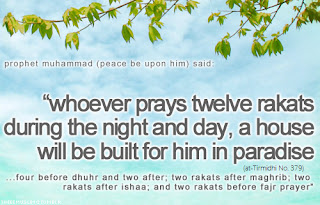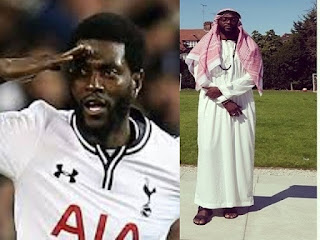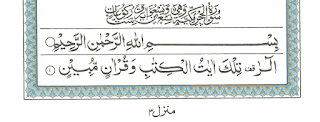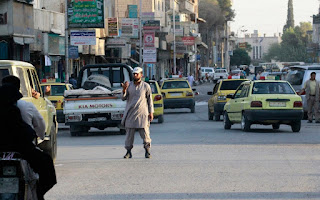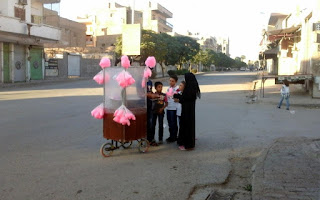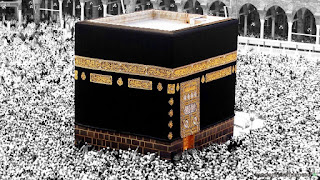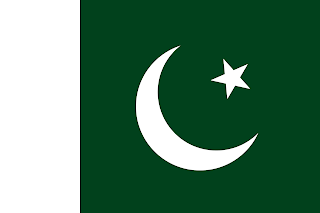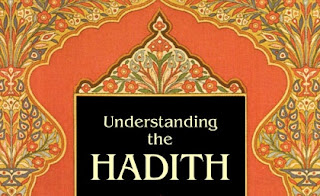Islam is the largest and the state religion of the Islamic Republic of Pakistan,[1] which is second only to Indonesia in the size of its Muslim population.[2] Pakistan has been called a "global center for political Islam".[3]
The overwhelming majority (95 to 97%) of Pakistan's 190 million people are Muslim while the remaining 3–5% are Christian, Hindu, and other minorities.[4][5] Sunnis form the majority at 80-85%, while the Shias make up between 10-20%.[4][5][6][7][8] Pakistan has the world's second largest Shia population after Iran, numbering between 16.5 million to as high as 30 million according to Vali Nasr.[9] Ahmadi Muslims make up approximately 2% of the population of the country (whether Ahmadi are Muslim or not is disputed).[10]
History
Arrival of Islam in modern Pakistan
The arrival of the Muslims to the areas of modern day Pakistan, along with subsequent Muslim dynasties, set the stage for the religious boundaries of South Asia that would lead to the development of the modern state of Pakistan as well as forming the foundation for Islamic rule which quickly spread across much of South Asia. Following the rule of various Islamic empires, including the Ghaznavid Empire, the Ghorid kingdom, and the Delhi Sultanate, the Mughals controlled the region from 1526 until 1739. Many Sufi missionaries from Middle East and Central Asia migrated and settled in South Asia. Many natives converted to Islam due to the missionary Sufi saints whose dargahs dot the landscape of South Asia. Sufism in Pakistan plays an important role in the country.
The Delhi Sultanate and later Mughal Empire ruled the northern India region. During the Delhi Sultanate and later Mughal Empire attracted Muslim refugees, nobles, technocrats, bureaucrats, soldiers, traders, scientists, architects, artisans, teachers, poets, artists, theologians and Sufis from the rest of the Muslim world and they migrated and settled in the South Asia. During the reign of Sultan Ghyasuddin Balban (1266-1286) thousands of Central Asian Muslims sought asylum including more than of 15 sovereigns and their nobles due to the Mongol invasion of Khwarezmia and Eastern Iran.
At the court of Sultan Iltemish in Delhi the first wave of these Muslim refugees escaping from the Central Asian genocide perpetrated by the hordes of Genghis Khan, brought administrators from Iran, painters from China, theologians from Samarkand, Nishapur and Bukhara, nobles from Khwarezm, divines and saints from all Muslim lands, craftsmen and men and maidens from every region, doctors adept in Greek medicine, philosophers from everywhere.
After the Battle of Panipat (1526) Mughal Emperor Babur defeated the Lodi dynasty with a diverse array of Muslim soldiers and nobles who were awarded estates and they settled with their families in modern Pakistan.
Umayyad invasion of Sindh
In 711 CE, when the Umayyad dynasty sent a Muslim Arab army led by Muhammad bin Qasim against the ruler of Sindh, Raja Dahir.
Punjab
Following the birth of Islam in Arabia in the early 7th century, the Muslim Arabs rose to power and replaced the Zoroastrian Persian Empire as the major power west of India in the mid 7th century. In 711–713 AD, Arab armies from the Umayyad caliphate of Damascus conquered Sind and advanced into the present-day southern Punjab, occupying Multan, which was later to become a center of the Ismaili sect of Islam.
Khyber Pukhtunkhwa
Hinduism, Buddhism, and Shamanism were the prominent religions in the region until Muslim Arabs and Turks conquered the area during the 7th century AD. Over the centuries migration took place by the population consisting majorly of Hindus and Buddhists.[11] While local Pashtuns brought in Islam, introducing some of the local traditions (albeit altered by Islam) such as Pashtunwali or the Pashtun code of honor.
Islam and the Pakistan Movement
The Muslim poet-philosopher Sir Allama Muhammad Iqbal first proposed the idea of a Muslim state in northwestern South Asia in his address to the Muslim League at Allahabad in 1930. His proposal referred to the four provinces of Punjab, Sindh, Balochistan, and the NorthWest Frontier—essentially what would became Pakistan. Iqbal's idea gave concrete form to two distinct nations in the South Asia based on religion (Islam and Hinduism) and with different historical backgrounds, social customs, cultures, and social mores.
Islam was thus the basis for the creation and the unification of a separate state. Allama Muhammad Iqbal in 1937, in a letter to Jinnah wrote, "After a long and careful study of Islamic Law I have come to the conclusion that if this system of Law is properly understood and applied, at last the right to subsistence is secured to every body. But the enforcement and development of the Shariat of Islam is impossible in this country without a free Muslim state or states. This has been my honest conviction for many years and I still believe this to be the only way to solve the problem of bread for Muslims as well as to secure a peaceful India."[12] But just three days before the creation of Pakistan, Mohammad Ali Jinnah made a different commitment, a commitment to secularism in Pakistan. In his inaugural address he said, "You will find that in the course of time Hindus would cease to be Hindus and Muslims would cease to be Muslims, not in the religious sense, because that is the personal faith of each individual, but in the political sense as citizens of the State." This statement of Jinnah is an object of great controversy since then and this vision of a Pakistan in which Islamic law would not be applied, contrary to Iqbal's perception, was questioned shortly after independence.
Islam: Influence in politics
Constitution
At least one observer (Charles Kennedy) has described the range of views on the "appropriate role of Islam" in Pakistan as having "Islamic Modernists" at one end of the spectrum and "Islamic activists" at the other. "Islamic activists" such as much or the ulama (Islamic clerics) and Jamaat-e-Islami (Islamist party), support the expansion of "Islamic law and Islamic practices". "Islamic Modernists" are lukewarm to this expansion and "some may even advocate development along the secularist lines of the West."[13]
Since the 1930s, the Muslim League had been lobbying and pushing its politics for a separate homeland for the Muslims of India, known as Pakistan. After Jinnah died in 1948, Prime Minister Liaquat Ali Khan's constitutional policies were directed to work on constitution.[14] On 12 March 1949, Prime Minister Ali Khan had the State parliament passing and promulgating the Objectives Resolution, which ultimately declared Islam as state religion of the country.[14] The main objective of Resolution was the "declaration of State's submitting to the democratic faith of Islam and to the sovereignty of God".[14] Such resolution was met with great resistance in the state parliament when Law minister J.N. Mandal resigned from his ministry and gave great criticism to Prime Minister Liaquat Ali Khan. Politicization of Islam in the country further tighten its support when ultra-conservative Clerics passed a "demand draft", called 'Twenty Two Points' which called for the preparation of constitution according to Objectives Resolution, in 1950.
Until the government of General Muhammad Zia-ul-Haq, "Islamic activists" were frustrated by the lack of "teeth" to enforce Islamic law in Pakistan's constitution. For example, in the 1956 constitution, the state did not enforce "Islamic moral standards" but "endeavor[ed]" to make them compulsory and to "prevent" prostitution, gambling, consumption of alcoholic liquor, etc. Interest was to be eliminated "as soon as possible".[15][16]
Conservatism and right-wing politics
Political Islam or Islamic revivalism/activism in Pakistan was and is associated with right-wing politics, (unlike some countries such as Iran or Lebanon, where Islamist slogans often mention "revolution" and support for the mostazafin against the elite). Influential Islamist leader Abul A'la Maududi, leader of Jamaat-e-Islami, strongly opposed socialism and populism. During the 1970 general elections, the religious conservative and not-so-religious conservative parties participated in the election in direct competition with left-oriented PPP led by Zulfikar Ali Bhutto. When the PPP won and initiated a land reform and nationalization program, right wing opposition (PNA) united under the revivalist banner of Nizam-e-Mustafa[17] ("Rule of the prophet"), calling for the establishment of an Islamic state based on sharia law, that according to supporters of the movement would mean a return to the justice and success of the early days of Islam when the Islamic prophet Muhammad ruled the Muslims.[18] In an effort to stem the tide of street Islamisation, Bhutto had also called for Islamisation -- banning the drinking and selling of wine by Muslims, nightclubs and horse racing.[19][18]
Bhutto was overthrown in 1977 and later executed by General Zia, who received support (at least at first) from this opposition, including Maududi, and the Jamaat-e-Islami. Zia pursued conservative policies both domestically and in foreign policy where he maintained strict opposition to Soviet Communism.
"Islamisation"
"Islamisation" was the "primary" policy,[20] or "centerpiece"[21] of the government of General Muhammad Zia-ul-Haq, the ruler of Pakistan from 1977 until his death in 1988. Zia establishing Hudood Ordinances against fornication and alcohol consumption, strict blasphemy laws, a profit-and-loss banking system, taxation of Zakat, establishment of a Federal Shariat Court and a Shariat Appellate Bench on the Supreme Court, and other policies such as a Ramadan Ordinance banning eating, smoking, and drinking in public places during that month and changing the weekend from Sunday to Friday.
These carried considerably greater implications for women than for men. Islamic activists believed the policies were inadequate, as (for example) interest-bearing saving accounts were not prohibited.
Muslim fiqhs in Pakistan
Global Security estimates that 50% of Pakistani Muslims are Barelvi, 20% Deobandi, 18% Shi'a, 4% Ahl al-Hadith, 2% Ismaili, and other 2%.[23] The International Centre for Political Violence and Terrorism at Nanyang Technological University, Singapore estimates that 60% of Pakistani Muslims are Barelvi Sufi, 15% Deobandi; 20% Shi'a, 4% Ahl al-Hadith; and 1% other.[24]
Sunni
According to the CIA World Factbook and Oxford Centre for Islamic Studies, 95-97% of the total population of Pakistan is Muslim.[5] The majority of the Pakistani Muslims belong to the Sunni Hanafi Madhhab (school of jurisprudence[25]).
The two subsects of Sunnis in Pakistan, the Barelvis and Deobandis, have their own Masjids. According to the conservative think tank The Heritage Foundation the majority of Sunni in Pakistan follows Barelvi traditions.[26] The Salafi school is represented by the Ahle Hadith movement in Pakistan.
Shia
Shia Ithna 'ashariyah are estimated 10-20%.[4][5][7][8][27] Pakistan has the world's second largest Shia population after Iran, numbering between 16.5 million to as high as 30 million according to Vali Nasr.
The Shi'a Ithna 'ashariyah school has its own Masjids and Hussainias (Imambargahs). Mustaali Dawoodi Bohra and Sulaimani Bohra also have their own Masjids, while the Nizari Ismailis have Jama'at Khanas. Although the vast majority of Pakistani Shi'a Muslims belong to Ithna 'ashariyah school, there are significant minorities: Nizari Ismailis (Agha Khanis) and the smaller Mustaali Dawoodi Bohra and Sulaimani Bohra branches.
Zikri
Many people on the Makran coast of Balochistan follow the heterodox Zikri sect of Islam. Zikri sect developed within Sunni Hanafis during the 18th century Mahdi movement as a reaction to decline of the Muslim rule and encroaching British colonialism in South Asia. Zikris are now gravitating back towards orthodox Sunni Hanafi beliefs.
Sufi
Sufism has a strong tradition in Pakistan, and is heavily represented among Barelvis. The Muslim Sufi missionaries played a pivotal role in converting the millions of native people to Islam. As in other areas where Sufis introduced it, Islam to some extent syncretized with pre-Islamic influences, resulting in a religion with some traditions distinct from other parts of the Muslim world. The Naqshbandiya, Qadiriya, Chishtiya and Suhrawardiyya silsas (Muslim Orders) have a large following in Pakistan. Sufis whose shrines receive much national attention are Data Ganj Baksh (Ali Hajweri) in Lahore (ca. 11th century), Baha-ud-din Zakariya in Multan and Shahbaz Qalander in Sehwan (ca. 12th century) and Shah Abdul Latif Bhitai in Bhit, Sindh and Rehman Baba in Khyber Pakhtunkhwa Province. Popular Sufi culture is centered on Thursday night gatherings at shrines and annual festivals which feature Sufi music and dance. Contemporary Islamic fundamentalists criticize its popular character, which in their view, does not accurately reflect the teachings and practice of the Prophet and his companions. There have been terrorist attacks directed at Sufi shrines and festivals, 5 in 2010 that killed 64 people.[28][29]
Ghair Muqallids
Roughly twelve per cent of Pakistani Muslims self-describe or have beliefs overlap with the ghair muqallids or nondenominational Muslims. These Muslims have beliefs that by and large overlap with those of the majority of Muslims and the difference in their prayers are usually non-existent or negligible. Nonetheless, in censuses asking for a clarification on which strand or rite of Muslim faith they most closely align, they usually answer "just a Muslim".[30]
Ahmadiyya
The Ahmadiyya Muslim community, a minority Muslim group is also present. In 1974, the government of Pakistan amended the Constitution of Pakistan to define a Muslim "as a person who believes in finality of Prophet Muhammad" and technically Ahmadis are declared non-Muslms.[31] Ahmadis believe in Muhammad as the best and the last law bearing prophet and Mirza Ghulam Ahmad as the Christ of Muslims. Consequently they were declared non-Muslims by a parliamentary tribunal. There are approximately 4 million Ahmadi Muslims in the country. This equates to 2.2% of the population.[10]
Quranists
Muslims who reject the authority of hadith, known as Quranist, Quraniyoon, or Ahle Quran, are also present in Pakistan.[32] In South Asia during the 19th century, the Ahle Quran movement formed partially in reaction to the Ahle Hadith movement whom they considered to be placing too much emphasis on hadith. Many Ahle Quran adherents were formerly adherents of Ahle Hadith but found themselves incapable of accepting certain hadiths.[33] Notable Quranists of Pakistani descent include Ghulam Ahmed Pervez (founder of Tolu-e-Islam), Asarulislam Syed (founder of the Jannat Pakistan Party), and Shabbir Ahmed.
Conversions to Islam
There has been conversion to Islam from the religious minorities of Pakistan. Many Hindus, Ahmadis and Christians have converted to Islam. Deen Mohammad Shaikh is a Muslim missionary from Matli in Badin District in Sindh province and has converted over 110,000 Hindus to Islam.[34]
Laws and customs
There is no law in Pakistan enforcing hijab and wearing of Hijab by Pakistani women is fairly uncommon. However, the practice of wearing Hijab among younger women in urban centers is slowly growing due to media influence from the Middle East and Persian Gulf countries.
Media and pilgrimages
Media and pilgrimages has influenced Pakistani Muslims to learn more about Islam as a result the local folk beliefs and practices are progressively being replaced with orthodox beliefs from Quran and Sunnah. The inexpensive travel, simpler visa rules and direct air travel to Saudi Arabia has resulted in large number Pakistani Muslims going to Medina and Mecca for Haj and Umrah. This has helped to increase Pan-Islamic identity of Pakistani Muslims. The Muslim print media has always existed in Pakistan which included newspapers, books and magazines. The Muslim satellite channels are widely available and are watched by Pakistani population.
Islamic education
The Islamiat, study of Islam, as a subject is compulsory for all Muslim students up to Graduation in Pakistan. Islamic education to the masses is also propagated mainly by Islamic schools and literature. Islamic schools (or Madrassas) mostly cater to the youth from impoverished social backgrounds and those learning to be Islamic clerics. More casual and even research oriented material is available in the form of books. While the most prominent of these schools are supervised, the latter are being 'moderated' by both the government and some of the scholars, thereby also removing in the process the various material present in it that is used by anti-Muslim writers. Oldest and universally accepted titles such as the Sahih Bukhari have been revised into 'summarised' editions and some of the old, complete titles, translated to Urdu, the national language, are not available for purchase now. These changes are also a herald to new outbreaks of religious controversy in the region.
Source: Wikipedia




